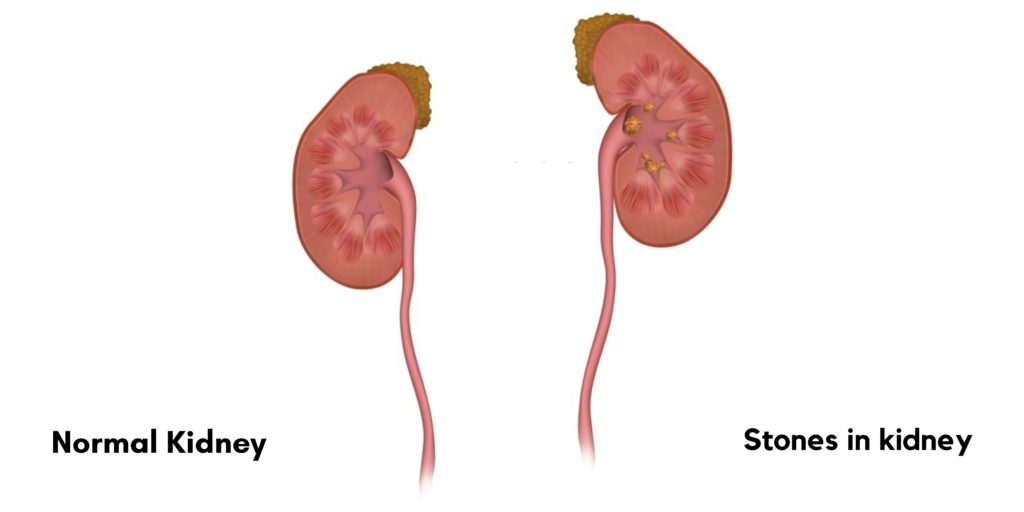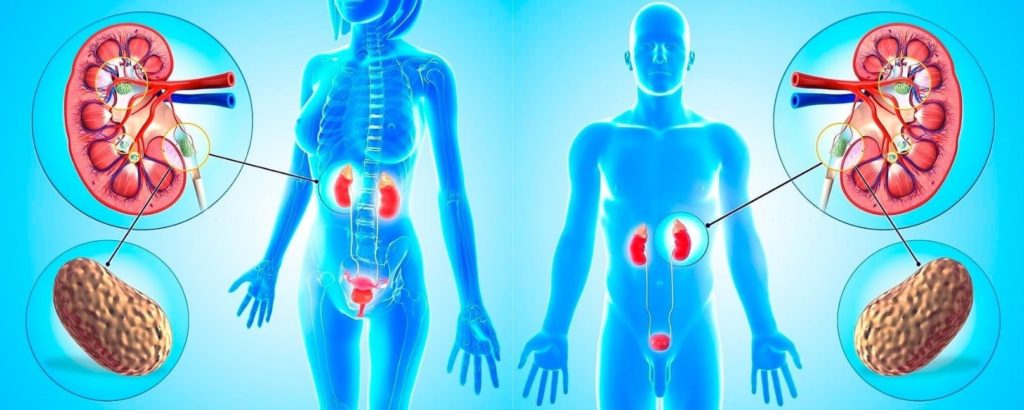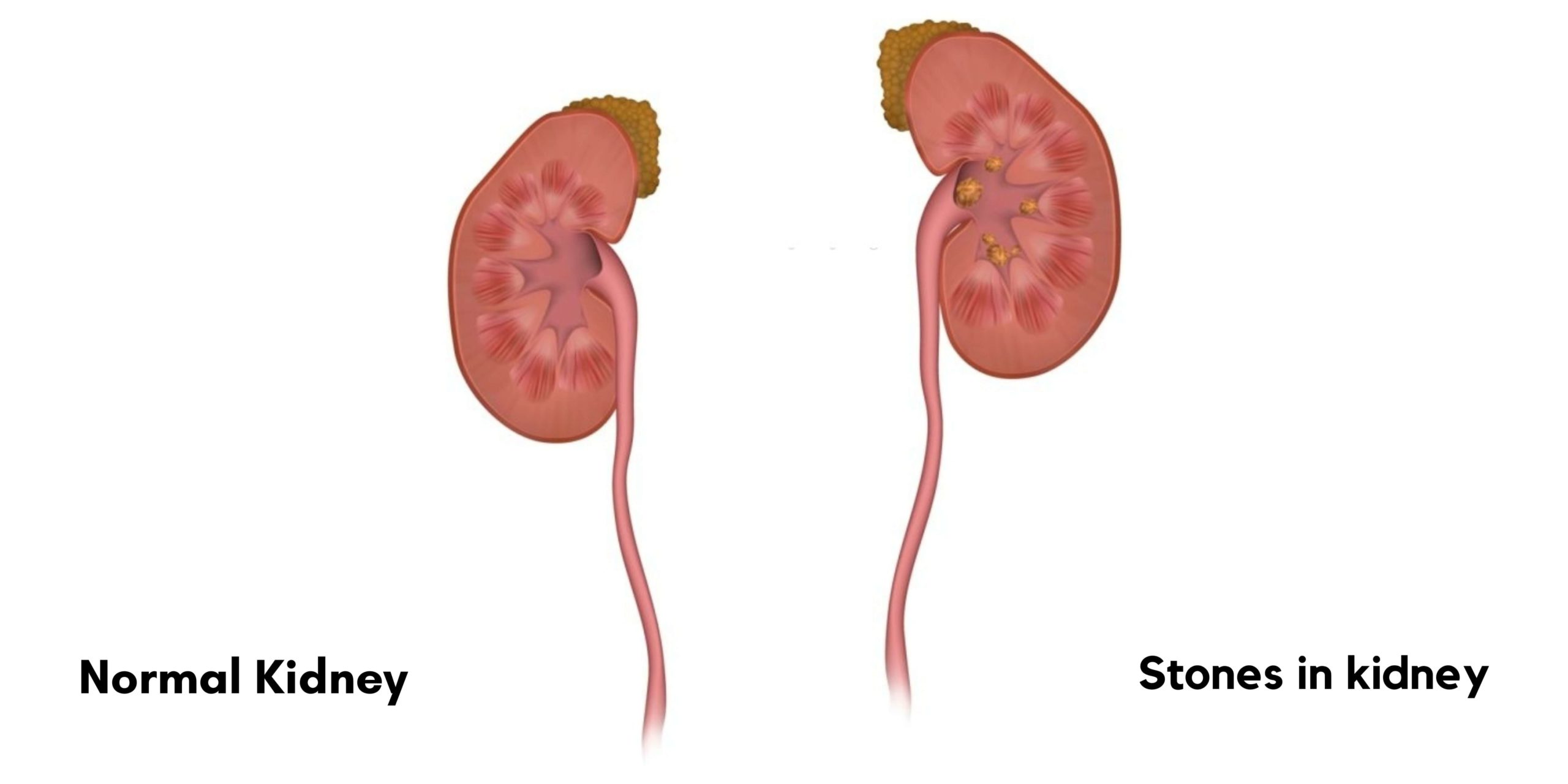Are Kidney Stones Genetic- This might be a question that arose in every person a problem with kidney stones. Kidney stones are very common nowadays as one in ten people are seen to be affected by this. Why does this happen?
Excess weight gain, unhealthy diets, certain medications can be seen as some of the major causes of kidney stones. Kidney stones are deposits found in the kidney. Minerals and salt gets crystallized and form deposits. These deposits reside in the kidney and can cause much pain while passing urine.
Are kidney stones genetic? Types, Symptoms, And Causes!
Researches have found out that genetics has a major role in the development of kidney stones. It is seen that if you have had them once, then it is likely to happen often. Due to medical developments in recent years, there are ways for preventing kidney stones.

A genetic variation seen in a particular gene called claudin-14 is seen to be linked with high chances of causing kidney stones in people. In recent studies conducted researchers have found how altering the gene can cause variation in the kidney stones formed.
The gene claudin-14 is not active in the kidney because a sister molecule DNA silence the gene. This ensures minerals and calcium and magnesium in the blood pass through the kidneys and gets reabsorbed back into the blood. From there, they are carried to different parts to perform their respective functions.
When people follow an unhealthy diet, more consumption of salt and calcium, and stays dehydrated, the RNA molecules leave their hold on claudin-14. This accelerates the process of the gene and stops the reabsorption of these minerals back to the blood.
Without calcium and magnesium re-entering the blood, the amount of these minerals increases in the urine and causes the formation of stones. There might be other genes that play a role in kidney stone formation but for now, this is how the major genes play out.
However, researchers believe that new medicines could be found in the future to target the short stretches of this RNA that are directly linked to claudin-14. Drugs that mimic the process of these RNAs can be made to get a hold of claudin-14 and to control the formation of kidney stones.
And new tests are being developed to find out the level of claudin-14 excreted in the urine. Increased levels of claudin-14 can inform high risks of kidney stone formation. And proper medication could be taken to prevent it before happening.
What are the types of kidney stones?
The four different types of kidney stones are mentioned below:
- Uric acid stones: This kind of kidney stone occurs when the concentration of uric acid is too high in the urine or if the ph value of the urine is too high. This could happen if one consumes a diet high in purines or proteins. Purine can be found in animals like beef, pork, egg, fish, etc. liver contains the highest amounts of purine. Uric acid can also be caused due to obesity or having diabetes.
- Struvite stones: Struvite stones are caused by an infection in the urinary tract also commonly known as UTI. The bacteria in the urinary tract produce ammonia as a waste product and this makes the urine more alkaline or less acidic. Kidney stones form when the urine becomes more alkaline. The main component of struvite stones is magnesium ammonium phosphate and calcium carbon-apatite. These are quite dangerous as they grow very fast and cause much pain. Surgeries are opted to remove this kind of stone.
- Cystine stones: These types of kidney stones are formed from the substance called cystine. This type of kidney stone is very rarely seen. This happens in a condition called cystinuria. Cystinuria is a condition where the compound cystine (an amino acid ) builds up in your urine. This could be an inherited condition that is passed on. Cystine stones can grow in size and are often removed through surgeries. This prevents any damage that can happen to the urinary tract and kidneys.
Calcium stones: This is the most commonly seen form of kidney stone. These usually are a form of calcium oxalate. Oxalate is produced by your liver. Having certain nuts and chocolate can accelerate the amount of oxalate formed. Metabolic disorders, a higher dosage of vitamin D, some medication can all increase the production of oxalate in the body. Some conditions of calcium stones may be due to calcium phosphate. This could be also due to different metabolic conditions or different medications.
Symptoms
Symptoms of kidney stones are often unnoticed until it gets severe. Some of the symptoms of kidney stones are:
- Pain from the lower abdomen and groin.
- Pain that comes and goes in different intensities.
- Pian while urinating.
- Burning sensation while urinating.
- Pain radiating from the back and below the ribs.
- In severe cases, blood while urinating could be a symptom. It could be brown or red in color.
- Foul-smelling urine.
- Nausea.
- Vomiting.
- Fever.
What are the causes of kidney stones?
- Less amount of urine: One of the major causes of kidney stones is a low volume of urine. This happens when your body isn’t getting enough fluids to dissolve minerals and salts in the urine. And that is the reason sometimes the color of urine is dark. This means you have to increase the intake of fluid in your body. Drinking water is very essential to prevent kidney stones from forming. Dehydration could be due to living in a hot place or exercising too much. Adults should drink about 2.5L of fluid a day to keep themselves hydrated.
- Obesity: Obesity can be another risk factor that can cause kidney stones in people. People who are obese will have higher fat content in the body. And this may change the acid levels in the urine causing stone formation. The food they eat may consist of more minerals and salts that may be leading to a much severe condition.
- Diet: Diet should be taken care of if you are someone who has a history of kidney stones. Salt is the main reason that can cause kidney stones. So try to avoid it as much as possible. A common cause why calcium stones are more common than others is the quantity of calcium deposits in urine. This does not mean you should decrease your intake of calcium. Calcium is very important for your bone health and this should not be compromised. You should reduce your salt intake for this. Decreasing salt intake will reduce calcium in the urine.
Eating beef, fish, pork, chicken can increase the acidity levels in the body and urine. And the breakdown of these proteins causes uric acid stones to form.

- Medications: Certain medications like calcium supplements and vitamin supplements can also cause kidney stone formation. Be careful to tell your health care specialist about your condition before taking medication for any disease.
- Hereditary: The chances of kidney stones are high if your family has a history of it. Hereditary also plays a major part in this. Check if your family has this just to be on the safe side. New studies are showing that genetics is partly blamed for the formation of kidney stones. They have found a new gene that plays a major role in kidney stone formation. Thus researchers are trying to find new drugs to alter the effects of this gene. A change could also be made through proper diet control.
- Bowel conditions: Bowel conditions that lead to diarrhea can also cause kidney stones formation. Diarrhea can cause loss of large amounts of fluids from the body which can lead to the formation of kidney stones. Conditions such as ulcerative colitis, and Crohn’s disease can increase the risk of calcium oxalate formation in kidneys causing stones to form. Due to dehydration, your body might absorb immoderately amounts of oxalate from the intestine and this will increase the amount of oxalate in urine. This can cause kidney stones as well.
You Might Like To Read This: Restolin Reviews
